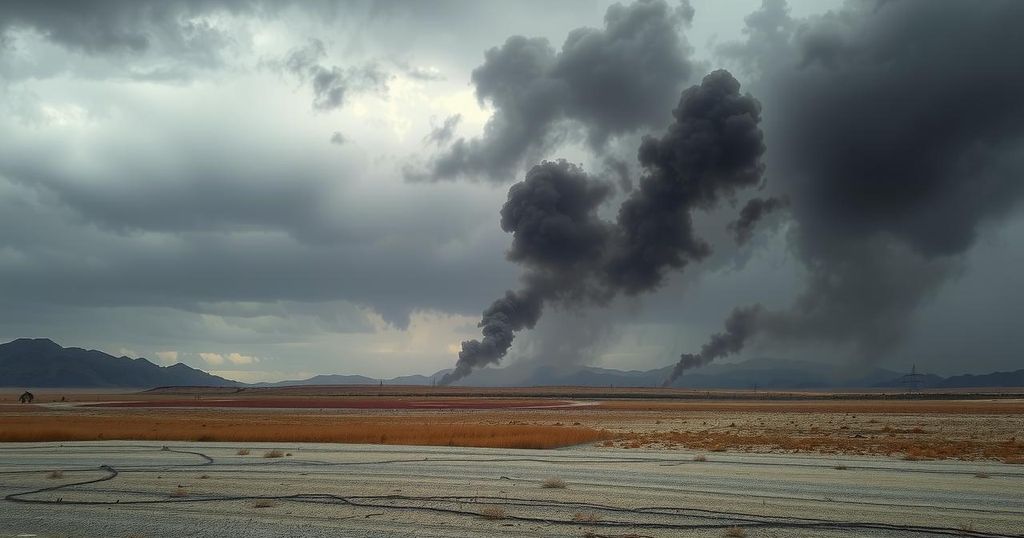Fighting persists in eastern DRC between M23 rebels and pro-Congo militias, leading to significant civilian casualties. The UN reported that recent conflicts have resulted in the death of 13 to 40 civilians. M23 has gained control over mineral-rich areas and aims to increase its power in Kinshasa, amid accusations of external support and allegiances fuelled by historical grievances.
Continued clashes in eastern Democratic Republic of Congo (DRC) between M23 rebels and pro-Congo militias have escalated in Nyabiondo, approximately 100 km north of Goma. Reports indicate that these altercations follow a recent attack that resulted in numerous civilian deaths. The United Nations, along with a local NGO, has confirmed a heavy civilian toll from this violence.
The M23 rebel faction has captured extensive regions within mineral-rich eastern DRC since the beginning of the year. Kipanda Biiri, a local administrative official, reported to Reuters that M23 had seized control of Nyabiondo following clashes that commenced at 11 a.m. local time. Civil society rapporteur Telesphore Mitondeke noted that heavy gunfire was currently prevalent throughout Nyabiondo’s center.
The current fighting arises from an earlier confrontation between M23 and a pro-Congolese government militia in Tambi, about 18 km northeast of Masisi. This altercation, which culminated in an attack on March 5, resulted in significant civilian casualties, with an internal UN memo estimating 13 to 40 fatalities.
Additionally, a spokesperson for the M23 alliance stated that a pro-government militia has defected to their side. Conversely, this militia’s original group maintains its allegiance to the Congolese government and army. M23 claims its intentions include seizing power in Kinshasa, accusing the DRC government of failing to honor peace agreements and adequately integrate Congolese Tutsis into its military and administration.
Analysts suggest that M23’s expansion into new, resource-abundant areas will enhance its ability to obtain mining revenues. The DRC government has consistently accused Rwanda of backing the M23 rebels, a charge Rwanda denies. Rwanda, in return, alleges that Kinshasa supports the FDLR, a Hutu militia with historical ties to the 1994 Rwandan genocide, a claim that the DRC rejects.
While the DRC has officially labeled M23 as a terrorist entity, the United Nations and the United States have classified it as an armed rebel group, underscoring the complex nature of the ongoing conflict and the contrasting narratives surrounding it.
The ongoing conflict in eastern DRC illustrates the dire humanitarian situation, characterized by severe civilian casualties and territorial loss to the M23 rebels. Amidst mutual accusations between regional powers, the violence poses a significant threat to stability and peace in the region, especially with the rebels’ ambitions to control mineral-rich territories and assert influence over Congolese governance. The designation of M23 as a terrorist organization by the DRC further complicates the already intricate dynamics of international relations in this crisis.
Original Source: www.voanews.com






